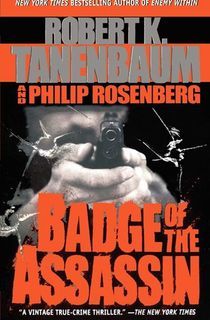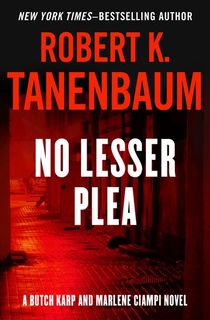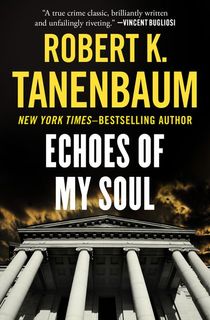After graduating from Boalt Hall School of Law at UC Berkeley, Robert Tanenbaum returned to his home state of New York to work under the leadership of District Attorney Frank Hogan.
There he became an Assistant New York County District Attorney in Manhattan, later becoming head of the Homicide Bureau, Chief of the Criminal Courts, and trained the D.A.’s legal staff.
But his career didn’t end in the D.A.’s office.
Tanenbaum served as Deputy Chief Counsel for the House Select Committee on Assassinations tasked with investigating both the assassination of President John F. Kennedy and the Rev. Dr. Martin Luther King, Jr. Once it became clear to Tanenbaum that the committee was not pursuing truth, he resigned.
He opened a private practice in California, consulting on the Hillside Strangler case, in addition to representing multiple high-profile defendants in Los Angeles and Beverly Hills. He also taught Advanced Criminal Procedure at his Alma Mater, Boalt Hall School of Law, and even served two successful terms as Mayor of Beverly Hills, all while launching a career as a writer.
Tanenbaum’s debut, Badge of the Assassin, detailed his own investigation and prosecution of several self-proclaimed members of the Black Liberation Army after they gunned down two NYPD officers in the 1970s simply because they wore blue.
Since then, he’s written three more nonfiction books and twenty-nine novels featuring Manhattan Assistant District Attorney, Butch Karp. The first fifteen of the novels were the result of a wonderful collaboration with his cousin, Michael Gruber—wherein each book, Tanenbaum says Gruber’s brilliant contributions to the manuscript cannot be overstated.
We were delighted to sit down and talk about Echoes of My Soul, a book detailing one of the most groundbreaking cases in legal history because of its impact on the future of due process in the United States.
As a result of this case, all law enforcement officers who question individuals in criminal cases are now required to Mirandize the accused.
Murder & Mayhem: Of all the non-fiction books you’ve written, Echoes of My Soul is the only one that wasn’t based on a case you investigated or tried. How did that come about?
Robert Tanenbaum: Mel Glass, who was my mentor in the District Attorney’s Office (DAO), asked me to write it. I spent over ten years as a prosecutor, with about nine years in the DAO in Manhattan, an extremely prestigious and apolitical environment.
The training was rigorous, handling a significant caseload of around 50 post-indictment cases at a time, ensuring quality dispositions without resorting to more plea bargains.
The Miranda case, central to Echoes of My Soul, emerged from this context, highlighting the importance of protecting individuals' Fifth and Fourteenth Amendment rights.
At the time, I was under contract for a two-book deal. Even though I always fulfill my commitments, when Mel called me, I of course agreed.
Mel, who later became a New York State Supreme Court judge, asked me to write this book because he trusted me to tell the story accurately. It surprised me because I thought he was the last person who would want this story told because of its attendant huge publicity.
Mel had refused lucrative offers from the media—including a $150,000 advance from Life Magazine—because he believed it was unethical to profit from doing his duty as a member of the District Attorney’s office. But some detectives were changing their story and Mel wanted the truth out there.
The book is a tribute to the pursuit of justice and the integrity of those who ensure it prevails.
M&M: What is Echoes of My Soul about?
RT: The book centers on a double murder case involving Janice Wiley and Emily Hoffett, who were brutally raped and murdered in their New York City apartment on August 28, 1963.
It was a building in the fashionable Upper East Side of Manhattan, complete with a doorman. Wiley lived on the third floor with two roommates. The killer saw that their window was open. To get inside the apartment, he used the service entrance and jumped from the service window into the apartment.
During their investigation, the Brooklyn detectives grabbed nineteen-year-old George Whitmore the following year. He had been accused of rape and had a photograph police believed at the time to be Janice Wiley. Whitmore had told the police he’d obtained the photograph at a garbage dump near his home in New Jersey, but the police believed otherwise.
After approximately 17 hours of interrogation, the Brooklyn detectives who questioned Whitmore, manipulated him into giving a confession by asking leading questions—forcing him to admit to details he couldn’t have known because the detectives themselves didn’t even have the facts. For instance, they pressed him about a nonexistent kitchen table, where they presumed Whitmore had allegedly obtained the murder weapon—a knife.
Ironically, the photo that the Brooklyn detectives had found on Whitmore was what brought him into the case, and it was the very same photograph that exonerated him.
Whitmore was nineteen and in the ninth grade. He kept repeating back to the detectives exactly what they told him, which was what they wanted to hear until they got the confession they sought.
Mel Glass had been in the Manhattan DA’s office for only six years at that point, assigned to the felony trial bureau. Mel’s sister inspired his pursuit of justice in this case. She was a psychologist who worked in that community and didn’t think it made sense for Whitmore to be the killer. Whitmore simply didn’t come across as someone who was capable of brutalizing people. Even if he were, he struggled to make his way to Manhattan and to Brooklyn from New Jersey, let alone solve the complex problem of how to get into that apartment.
Mel took the photograph (found on Whitmore) that the police had marked as “Janice” to her family. But instead of confirming it was she, her family did the opposite. That single piece of evidence blew their whole case apart. Mel tells all of this to District Attorney, Frank Hogan, who at the time himself was legend.
Mel had exonerated Whitmore to Hogan, whose reaction was to call up his bureau chiefs so they could hear Mel’s critique of the case. The bureau chiefs then explained to Hogan, that if Whitmore is exonerated—after he’d given a 61-page stenographic confession—it would render all existing Q&A confessions used in other cases subject to outright disbelief. The bureau chiefs wanted Whitmore to take a plea.
Hogan then asked rhetorically: “When did we become so corrupt? That we’d take a guilty plea from an innocent person? That’s not what we do here.”
The bureau chiefs then responded by suggesting that exonerating Whitmore would damage Hogan’s precious legacy. Hogan gave no concern of how anyone would react, knowing he did the right thing.
His honesty in the instant case actually enhanced his already legend status.

Robert K. Tanenbaum
M&M: What was the aftermath of the case?
RT: The aftermath was tragic. Max Wiley, Janice’s father suffered when his wife and other family members died. All of which were painful, but the most maddening of all was the murder of Janice. As a result of this intolerable despair, Max Wiley put a .38 caliber gun in his mouth and committed suicide.
As far as Whitmore was concerned, Hogan ordered Mel to go down to court and immediately dismiss the case of People v. George Whitmore.
M&M: How does Echoes of My Soul tie into the Miranda case?
RT: When police investigate crimes, they seek out various tips through their informants. But they don’t always talk and a lot of them tend to be minorities. People don’t always know that they’re allowed to say, “I want a lawyer,” when they’re taken into custody and aren’t allowed to leave.
As far as Mel, Hogan, and I were concerned, everyone needs to be protected against violating their Fifth and Fourteenth Amendment rights. You simply can’t force people into testifying against themselves.
In the Miranda case, Chief Justice Earl Warren referenced the George Whitmore case in his opinion, as an example of why it is crucial for all those subject to interrogation to be Mirandized.
Perhaps if Whitmore had been arrested after the Miranda case, he could have asked for a lawyer right away and could have stopped the false confession from ever being planted in the first place.
M&M: You’ve only written four non-fiction books, but your Butch Karp series spans an impressive twenty-nine novels. Why fiction?
RT: Starting at public school 238 in Brooklyn, I always had an interest in writing. I would write about various issues and talk to my teachers about them. They were tremendously helpful.
I wanted to tell the stories in my novels that I didn’t want to tell in my nonfiction books. People mess up, they get lazy, or they don’t always do what they should do. But I didn’t want to hurt those people.
Since I had this unique experience with the DA’s office, I wanted to tell stories about major issues in the justice system in a way that felt true to me without embarrassing others. Most all the names are changed, so it gave me the freedom to write without hurting anyone.
Compared to nonfiction, which is factually demanding, with novels I didn't have to stick to all the facts all the time. I love nonfiction, but my novels are really about war stories, the things I lived through, sometimes embellished, but within the ranks of making graphic points about justice.
So, of course, the family is one of crime fighters, including a DA Marlene Ciampi, who marries Butch Karp in the series. They had three children, and their daughter Lucy is a linguist. It was fun.
M&M: What do you hope readers take away from Echoes of My Soul?
RT: It's all been an expression of the things I've loved in my life. Mel has passed away, but his family is very involved. His daughter, Elizabeth, lives in the Albany area.
They've been in constant contact with me, and I'm very grateful for doing the book about him. I went in the direction Mel wanted, and he loved it, which I loved because of my respect and love for him. I’m glad I was able to show what Mel went through, how he was attacked by bureau chiefs for saying they had the wrong guy, and that Hogan stood up to them. That’s the kind of leadership we need today.
I entitled the book Echoes of My Soul because the whole story is part of my being, and I'm glad I did it. It's my favorite of all of them. This is the only book about a case that I didn’t investigate or try, and that’s partly why I loved writing it. Even though the other cases were more natural for me, having already tried them, I had the luxury of deciding if I wanted to write this story, and that gave me more leeway.
I would like readers to know that my books are about the obligations and necessities of government, the best side of it all, not just the corrupt side. They show the responsibilities we owe the public when you go into government.
That's what my books are about, the values of American exceptionalism—which is a moral concept. That salvation comes from being moral, not in the acquisition of dollars. It's not an arrogant posturing; it's something we owe the public.
More Books by Robert Tanenbaum

Badge of the Assassin
Officers Waverly Jones and Joseph Piagentini were just doing their jobs when they found themselves under attack. Ambushed from behind a Manhattan housing project, Jones was shot four times in the back of his head at point-blank range. But Piagentini, who was shot 22 times, was begging for his life because he was a dad to two young daughters.
This death squad was determined to take out as many law enforcement officers as they could. With the personal expertise as prosecuting attorney, Tanenbaum reconstructs the brutal murders, the manhunt, and the trial of these killers.

The Piano Teacher
Charles Yukl was a quiet man. He was a piano and voice teacher in New York City. He offered a way for aspiring actress Suzanne Reynolds to reach her dreams. But instead, he destroyed her.
Hiding behind a mild-mannered personality and choir-boy looks, Yukl was a man who hated women and was lost in perverse delusions. After he murdered Reynolds and received a pitiful plea bargain, he was freed after doing five years—only to kill again.
The Piano Teacher highlights two horrific crimes, their devastating aftermath, and the flawed legal system that allowed it all to happen.
Coal Country Killing
In 1969, the reform candidate for the United Mineworkers of America, Jock Yablonski, along with his wife and 25-year-old daughter, were murdered in their Pennsylvania farmhouse at approximately 1 am on December 31. Three small-time assassins, known as The Hillbilly Hitmen, were initially arrested and charged.
But the corruption ran much deeper than these three murderers. Then-UMWA President, the corrupt Tony Boyle, was desperate to ensure his corruption as leader wasn’t exposed.
Despite reluctant adverse witnesses who felt loyal to the UMWA leadership all of their working life and questioned the “nature” of some law enforcement officials who fought against the Union’s leadership and initial organization, homicide prosecutor Richard A. Sprague understood the good people and nature of those living in Appalachia.
This inspired him and his investigators to spend seven years engaging in six separate trials—including those of the three shooters who committed the murders and the corrupt union officials who facilitated the assassinations—in an effort to get to the truth.
Sprague was Tanenbaum’s special friend, an outstanding district attorney and trial lawyer without equal.

No Lesser Plea
Meet Manhattan Assistant District Attorney Roger “Butch” Karp. Despite the flaws of the judicial system, he still believes in justice.
No Lesser Plea is the first in a series of novels spanning twenty-nine books. Starting in 1970s New York City, Butch Karp and Marlene Ciampi face their love for each other amidst the daily frustrating challenge of trying to mete out justice in a city overwhelmed with crime.
.png?w=3840)
